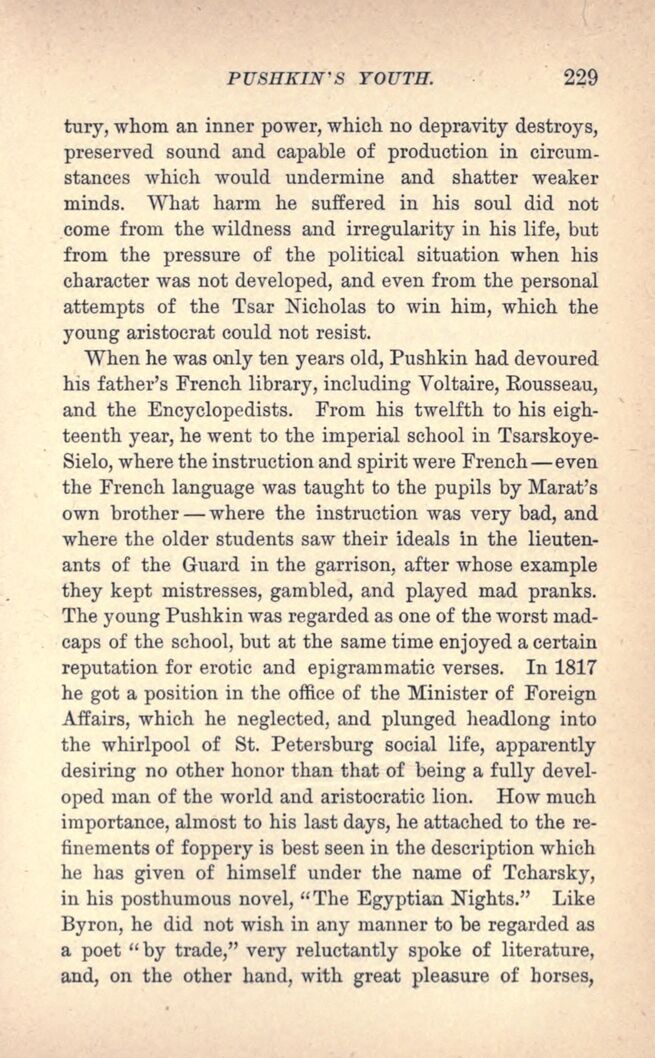
Full resolution (JPEG) - On this page / på denna sida - Impressions of Russian Literature - III

<< prev. page << föreg. sida << >> nästa sida >> next page >>
Below is the raw OCR text
from the above scanned image.
Do you see an error? Proofread the page now!
Här nedan syns maskintolkade texten från faksimilbilden ovan.
Ser du något fel? Korrekturläs sidan nu!
This page has been proofread at least once.
(diff)
(history)
Denna sida har korrekturlästs minst en gång.
(skillnad)
(historik)
century, whom an inner power, which no depravity destroys,
preserved sound and capable of production in
circumstances which would undermine and shatter weaker
minds. What harm he suffered in his soul did not
come from the wildness and irregularity in his life, but
from the pressure of the political situation when his
character was not developed, and even from the personal
attempts of the Tsar Nicholas to win him, which the
young aristocrat could not resist.
When he was only ten years old, Pushkin had devoured
his father’s French library, including Voltaire, Rousseau,
and the Encyclopedists. From his twelfth to his
eighteenth year, he went to the imperial school in
Tsarskoye-Sielo, where the instruction and spirit were French — even
the French language was taught to the pupils by Marat’s
own brother — where the instruction was very bad, and
where the older students saw their ideals in the
lieutenants of the Guard in the garrison, after whose example
they kept mistresses, gambled, and played mad pranks.
The young Pushkin was regarded as one of the worst
madcaps of the school, but at the same time enjoyed a certain
reputation for erotic and epigrammatic verses. In 1817
he got a position in the office of the Minister of Foreign
Affairs, which he neglected, and plunged headlong into
the whirlpool of St. Petersburg social life, apparently
desiring no other honor than that of being a fully
developed man of the world and aristocratic lion. How much
importance, almost to his last days, he attached to the
refinements of foppery is best seen in the description which
he has given of himself under the name of Tcharsky,
in his posthumous novel, “The Egyptian Nights.” Like
Byron, he did not wish in any manner to be regarded as
a poet “by trade,” very reluctantly spoke of literature,
and, on the other hand, with great pleasure of horses,
<< prev. page << föreg. sida << >> nästa sida >> next page >>